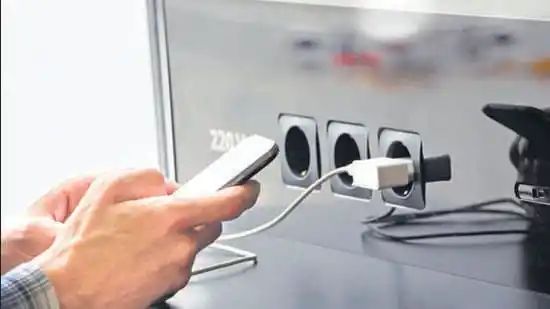
Consumer Affairs Secretary Rohit Kumar Singh announced on Wednesday that India will switch to a USB type C charging port for all smart gadgets after stakeholders reached an agreement at a meeting of an inter-ministerial task force established by the Union government.
In order to transition to two standard chargers—one for all compatible devices and another for inexpensive feature phones—the government is organising extensive discussions. Portable device universal chargers will not only make things easier for consumers, but also reduce the enormous volumes of e-waste produced in the nation.
According to an ASSOCHAM-EY report titled “Electronic Waste Management in India,” India is estimated to have produced 5 million tonnes of e-waste in 2021, trailing only China and the US in terms of production.
“During the meeting, there was a general agreement among the participants to use USB Type-C as a charging port for electronic devices such laptops, tablets, and smartphones, among others. Additionally, the possibility of using a different charging port for feature phones was discussed “Said Singh.
Standard connectors and charging devices are already becoming more prevalent in many affluent economies. The European Union (EU) wants all devices to have USB-C ports as standard. According to a Bloomberg report, the EU passed provisional legislation on June 7 this year requiring all future smartphones sold in the EU, including Apple’s iPhone, to have a universal USB-C port for wired charging by the middle of 2024.
According to a second official, one of India’s worries is that after the EU makes the switch, it would dump outdated phones and equipment in India.
The Indian Institute of Technology Kanpur, Maharaja Agrasen Institute of Technology, Confederation of Indian Industry, Federation of Indian Chambers of Commerce and Industry, and the Ministry of Environment, Forest, and Climate Change all sent delegates to the meeting on Wednesday.
A separate sub-group of the task force has been established by the consumer affairs ministry to look into the viability of standard charging ports for wearable technology, such as smart watches.
The official cited above said stakeholders agreed on a phased roll-out of uniform charging port for “effective implementation and easy adoption”, adding: “Industry should overcome inertia in adopting a uniform charging port in the interest of consumer welfare and prevention of avoidable e-waste.”
An Impact study is likely to be conducted by the environment ministry to “assess and examine” the impact of a changeover to uniform charging port on e-waste generation, the second official said.
“Globally, the shift is pivoted towards USB-C ports, so it would make sense for us to adopt it too. One important point is that the rate of technological obsolescence in the electronic industry is very high and what is in today is out tomorrow,” said Ajay Garg of Electronic Industries Association of India.
According to a recent letter sent by the consumer affairs secretary to industry representatives inviting them to consultations, the Union government is of the opinion that the nation should move to two types of standard charging devices, one for smart phones and other portable devices like laptops and tablets, and another for cheaper feature phones, which has a larger market share.
Officials hope that by establishing a standard for universal chargers, phone manufacturers will no longer need to include chargers in the box because consumers will already have the necessary chargers and charging accessories.






